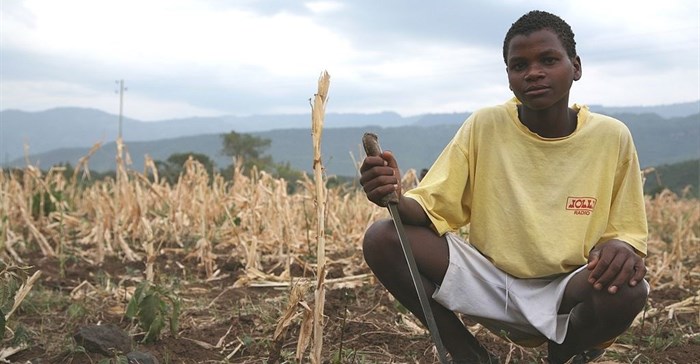






El Nino conditions have caused the lowest recorded rainfall between October 2015 and January 2016 across many regions of Southern Africa in at least 35-years. The period also recorded the hottest temperatures in the past 10 years. Poor rainfall, combined with excessive temperatures, has created conditions that are unfavourable for crop growth in many areas, according to the report.
In Lesotho, South Africa, Swaziland, Zambia and Zimbabwe, planting was delayed by up to two months or more, and is expected to severely impact maize yields. Already an estimated 15,9 million people in Southern Africa are highly food insecure, it said.
More than 40 million rural and 9 million poor urban people are at risk due to the impacts of El Nino's related drought and erratic rainfall, according to the report. Small-scale farmers will be particularly hard hit by a second successive poor harvest, it said, adding that food price inflation will also impact low-income households. Maize prices continue to rise well above their five-year average.
In South Africa, spot prices have more than doubled compared to the five-year average, revealed the report. Current macroeconomic conditions, including falling international commodity prices and currency depreciations may inhibit countries' capacity to secure sufficient food supply, it added.
"Regional coordination and government leadership of critical contingency, preparedness and response planning are crucial to guarantee sufficient food supply and access for the most vulnerable people," it said.
Xinhua

AllAfrica is a voice of, by and about Africa - aggregating, producing and distributing 2000 news and information items daily from over 130 African news organisations and our own reporters to an African and global public. We operate from Cape Town, Dakar, Lagos, Monrovia, Nairobi and Washington DC.
Go to: http://allafrica.com/